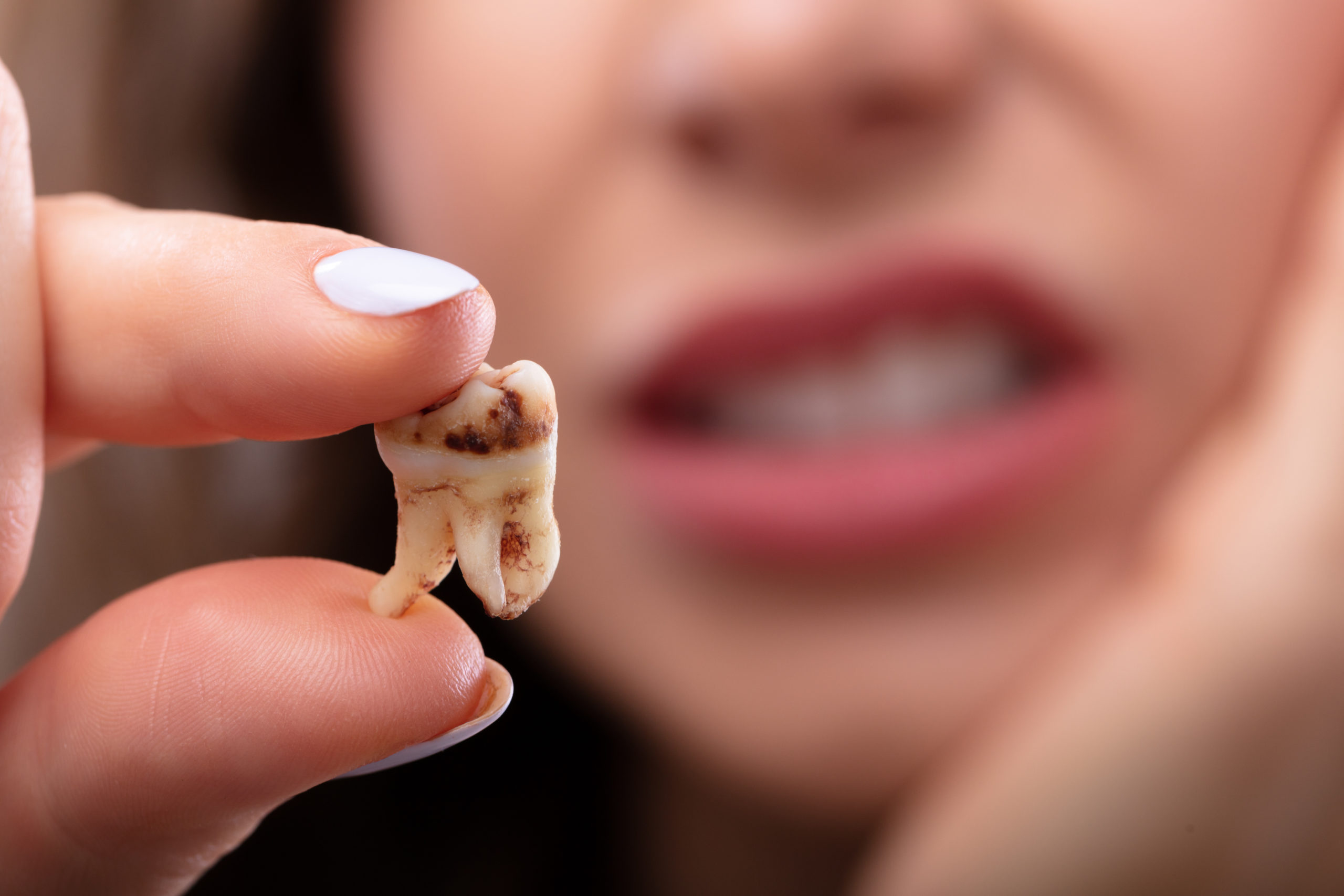
What Is The Leading Cause of Tooth Decay?
Tooth decay involves erosion of dental (tooth) enamel that results in cavities and sometimes tooth loss. Dental enamel is one of the hardest substances in the body. It protects the tooth’s inner pulp where nerves provide nutrients essential for tooth health. Dental enamel also contains water and minerals, such as calcium, that help make it capable of withstanding powerful grinding forces needed to chew and swallow food.
Dental Enamel and Decay
For all its strength and hardness, dental enamel is unfortunately susceptible to damaging oral bacteria called anaerobic bacteria. Thriving in airless, dry environments, anaerobic bacteria consume food debris, mucus, and dead cells in the mouth and throat. If bacteria are allowed to accumulate on dental enamel (lack of brushing, flossing, and getting dental teeth cleaning every six months), it will erode the enamel and create an aggressive film called plaque.
Not caring for your teeth properly accelerates tooth decay and the development of periodontitis. Although anaerobic bacteria is the primary reason for tooth decay, cavities, and gum disease, what exactly encourages the overgrowth of oral bacteria?
Are You Feeding Oral Bacteria Their Favorite Foods?
While anaerobic bacteria eat just about anything you put in your mouth, there are some foods that especially accelerate bacterial activity, such as potato chips, alcohol, sticky candies, and carbonated drinks. Potato chips (and French fries) are loaded with carbohydrates that convert to sugar when exposed to saliva. Most of this converted sugar ends up trapped between your teeth, where bacteria engage in a feeding frenzy. Always try to brush or floss your teeth after eating carbohydrate-rich foods to help prevent tooth decay.
Soft Drinks
Carbonated sodas increase oral acid content that makes it easier for bacteria to erode dental enamel. Having one soft drink every day won’t promote tooth decay as long as you brush and floss twice daily. However, sipping several Cokes daily will leave a constant coating of acid on your teeth. In addition, the caramel coloring in soft drinks may stain your teeth even if you practice good dental hygiene.
Some people have more porous dental enamel than others, which makes their teeth particularly susceptible to discoloration. Once your teeth have stained from drinking soft drinks, the only way to remove them is with professional teeth whitening.
Does Smoking and Alcohol Cause Tooth Decay?
Second on the list of leading causes of tooth decay (behind carbs and sodas) is smoking and alcohol. Both are considered oral desiccants, or agents that extract moisture from hydrated tissues. A frequently dry mouth means reduced saliva flow and less oxygen–an environment in which oral bacteria are at their most active. In addition to helping you chew and swallow food, saliva has antibacterial properties that assist in keeping your teeth and gums clean. This is also why bad breath is associated with a dry mouth. Anaerobic bacteria not only cause tooth decay but excrete foul-smelling, sulfuric gases indicative of halitosis.
Can Xrays Detect Tooth Decay?
Digital x-rays can detect the earliest signs of tooth decay to prevent tooth loss or the need for more extensive procedures. As a preventative tool, digital x-rays significantly exceed the ability of older X-ray devices to detect serious oral problems at their onset. Additionally, digital x-rays create 3D images that pinpoint areas of tooth decay by utilizing sensory cameras to relay images to a computer monitor.
Combating Tooth Decay At Artistic Touch Dentistry in Melbourne, FL
The leading cause of tooth decay is ultimately not caring for your oral health. Fortunately, tooth decay does not have to result in cavities if caught in time. Getting a dental checkup and cleaning every six months and practicing good dental hygiene can keep your smile white, healthy, and beautiful.
At Artistic Touch Dentistry, we use only state-of-art equipment such as intraoral cameras, digital x-rays and the latest dental techniques to detect, diagnose, and treat tooth decay, as well as all other teeth and gum conditions. Contact us today to ensure a healthy smile for life!

